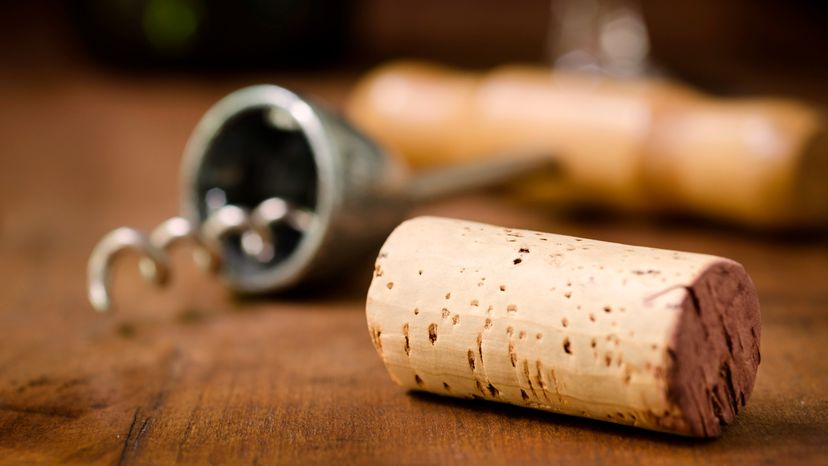Where does cork come from? (original) (raw)

Cork is gotten from the cork oak tree, which primarily grows along the coast of the Mediterranean sea. Brycia James / Getty Images
Key Takeaways
- People harvest cork from the cork oak tree, which grows primarily in Mediterranean countries such as Portugal, Spain and Italy.
- You can harvest the bark without harming the tree every 8 to 14 years after the tree reaches 25 years of age, using a careful stripping process during the summer months.
- People value cork for its unique properties, including water resistance, buoyancy and durability, making it ideal for products like wine stoppers and flooring tiles.
Just about every tree has an outer layer of cork bark, but the cork oak (Quercus suber) is the primary source of most cork products in the world, including wine bottle stoppers. These trees primarily grow in countries that run along the coast of the Mediterranean Sea, where there's plenty of sunshine, low rainfall and high humidity. The countries that produce the most cork include Portugal, Algeria, Spain, Morocco, France, Italy and Tunisia.
So, why does the cork oak have a thicker layer of cork bark than other trees? The tree evolved to protect itself from the harsh conditions of the forests near the Mediterranean. These forests experience frequent droughts, brush fires and temperature fluctuations. Cork is actually made of water-resistant cells that separate the outer bark from the delicate interior bark. It has a unique set of properties not found in any other naturally existing material. It is lightweight, rot resistant, fire resistant, termite resistant, impermeable to gas and liquid, soft and buoyant. It's these properties that make it ideal for stopping wine bottles and tile flooring. Let's take a look at how cork gets stripped from the tree and processed into consumer products.
- Stripping the bark -- A cork oak must be at least 25 years old before its bark can be harvested. Its cork can then be stripped every 8 to 14 years after that for as long as the tree lives. The cork is stripped off during June, July and August using a long-handled hatchet to cut sections out of the bark. These sections are then pried away from the tree. Workers must be careful not to damage the inner layer of the bark, otherwise the bark won't grow back.
- Washing the cork -- The cork slabs that are cut away from the tree are boiled and the rough outer layer of the bark is stripped away. Boiling the cork also softens it, making it easier to work with.
- Punching Bottle Stoppers -- From the slabs of cork, holes are punched out to make bottle stoppers. This leaves the slabs full of holes. These bottle stoppers are then sorted and shipped to various destinations. The stoppers can at this time be printed or branded with names or logos.
- Uses for Scrap Cork -- Once the bottle stoppers have been punched out of the cork slabs, there is some leftover cork scrap. This scrap is ground up, molded into large blocks and baked in ovens to make other cork products, such as cork tile flooring and cork message boards.
Cork has been used as bottle stoppers for more than 400 years. It is possibly the best suited material to use as a bottle stopper because it contains a natural waxy substance, called suberin. This substance makes cork impermeable to liquids and gas, and prevents the cork from rotting.
Here are some interesting links:
- Cork Oak
- What is Cork?
- Cool Experiment using Cork
Frequently Asked Questions
How does the environment benefit from cork oak cultivation?
Cork oak forests support biodiversity, including endangered species like the Iberian lynx, and act as a significant carbon sink, mitigating climate change.
What are the ethical considerations in cork harvesting?
Ethical cork harvesting involves sustainable practices that ensure no trees are cut down. People only harvest the bark, allowing the tree to continue growing and providing ecological benefits.